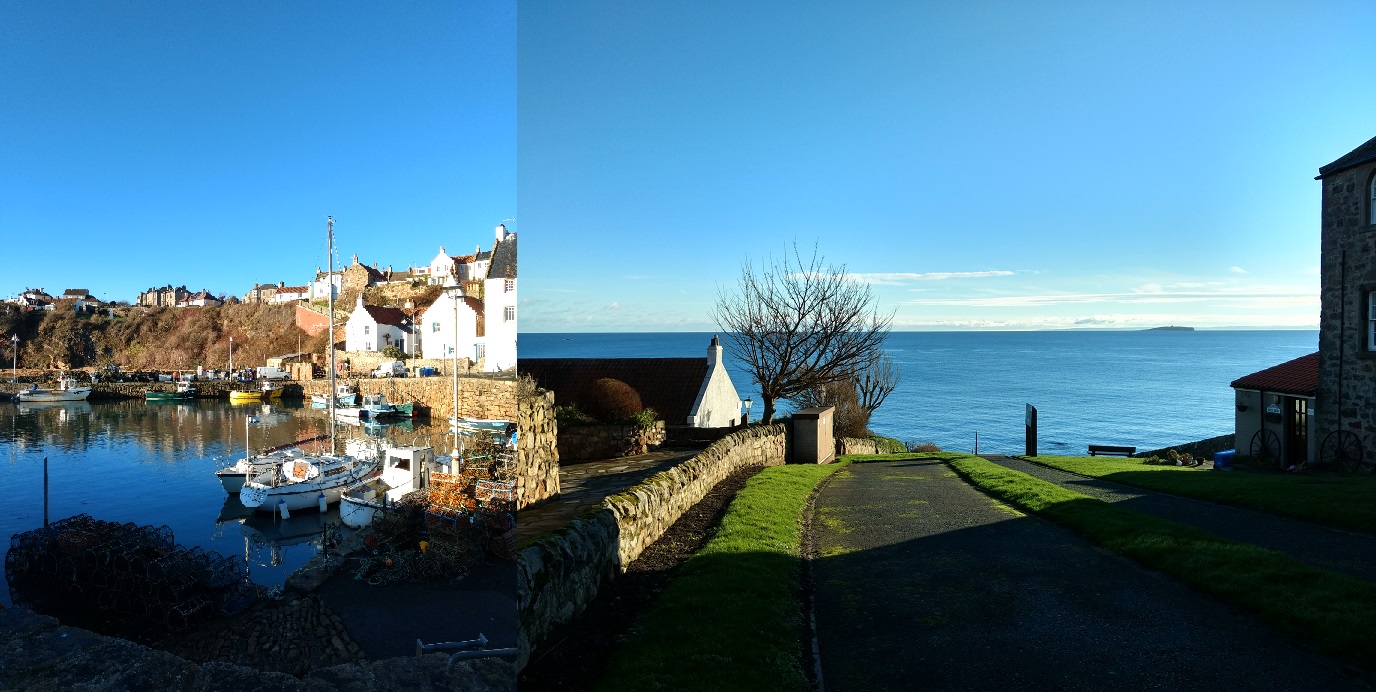Douglas Whalin late antique historian
Mountains in the Classical Tradition Workshop
I attended a workshop, organized by Dr Hollis and Prof König of the School of Classics at the University of St Andrews. It was held 3rd-4th December, 2018, at the Cambo House, on the coast of Fife a few miles outside of St Andrews. All participants pre-circulated draft papers, and the estate made a cozy setting where we were able to have some very fruitful discussions. The organizers intend to rapidly publish the proceedings as a multi-authored collection, so look forward to further updates on that.
The weather during the workshop was what one might think of as ‘winter on the coast of the North Sea,’ and we got drenched on our one group hike – an experience not conducive to pictures. Fortunately, I arrived in the area the day before the workshop, when the weather was behaving, and had a nice morning to take a few photos of the seaside town of Crail in Fife.

The abstract of the paper I presented is as follows.
Late Antiquity covers the period from the reign of Diocletian and the end of the Crisis of the Third Century to the Abbasid Revolution and the final relapse of the Justinianic Plague, approximately AD 284-750. In this period, Christianity transformed from a marginal religious movement into a uniting cultural phenomenon across the Mediterranean and Eurasia. Christianity grew out of and in dialogue with classical culture. Educated Romans not only read and transmitted the Christian literature of the early Church, but ‘pagan’ classics as well. The educated elite could, and did, draw on both traditions – identified as opposites in Nicholson’s view of antiquity. Across a variety of literary genres we encounter real spaces populated with herdsmen and ascetics, men and women going about their lives, as well as deeply-embedded literary conceits directly inherited from both the classical and biblical traditions. Mountain wilderness could be rhetorically constructed as a retreat, cultivated into Edenic gardens far from the pressures of their contemporary world. This creates an implicit dichotomy between the mountain and the city. Often discussion about mountains turned out to be an exploration of the author’s attitudes towards the dominant urban society which characterized the Roman Mediterranean in these centuries and the changes and challenges which the author perceived in it.
December 9th, 2018 by DC Whalin